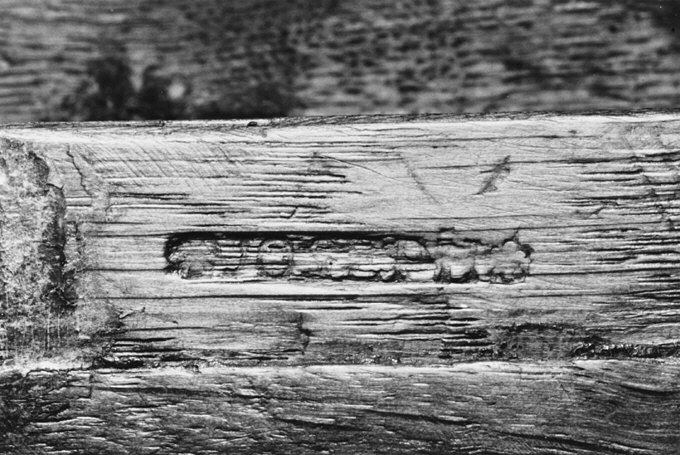Joseph Baumhauer on:
[Wikipedia]
[Google]
[Amazon]
 Joseph Baumhauer (died 22 March 1772) was a prominent
Joseph Baumhauer (died 22 March 1772) was a prominent
 Joseph Baumhauer (died 22 March 1772) was a prominent
Joseph Baumhauer (died 22 March 1772) was a prominent Paris
Paris () is the Capital city, capital and List of communes in France with over 20,000 inhabitants, largest city of France. With an estimated population of 2,048,472 residents in January 2025 in an area of more than , Paris is the List of ci ...
ian ''ébéniste
An ''ébéniste'' () is a cabinet-maker, particularly one who works in ebony. The term is a loanword from French and translates to "ebonist".
Etymology and ambiguities
As opposed to ''ébéniste'', the term ''menuisier'' denotes a woodcarver or ...
'', one of several of German extraction. Having worked for some years as a journeyman for the German-born ''ébéniste'' François Reizell, he was appointed ''ébéniste privilegié du Roi'' in 1767, enabling him to skirt certain requirements of the Paris guild under royal privilege as well as a stiff entrance fee. He used the stamp ♣JOSEPH♣, the name by which he was commonly known to his contemporaries, between fleurs-de-lis emblematic of his royal appointment. Such stamps, like the long-mysterious B.V.R.B., served to mask the identity of cabinetmakers to the clientele of '' marchands-merciers'', such as Lazare Duvaux, who owed the "ébéniste Joseph" 1726 ''livres'' at the time of his death. Furniture stamped by Baumhauer that is mounted with Sèvres porcelain plaques must have been commissioned and sold by Simon-Philippe Poirier, who maintained a monopoly of the production, having originally devised the decor. some furniture stamped by Joseph is veneered with panels of Japanese lacquer, another sure indication of the intervention of a ''marchand-mercier'', who, rather than the cabinetmaker himself, was in a position to purchase Japanese screens and cabinets, have them disassembled and, once the wooden support of the lacquer surfaces had been planed down, applied as costly veneer panels. Other ''marchands-merciers'' for whom Joseph is known to have worked include Thomas-Joachim Hébert and Charles Darnault.
The inventory of his workshop and stock in trade taken after his death following a long illness gives a snapshot of his current style; one of the appraisers was the ''ébéniste'' Martin Carlin, to whom Joseph owed 113 ''livres''. As might be expected in 1772, some of the furniture was in Louis XV style (''contournée'', "serpentine" in shape) while entries for other pieces revealed their Louis XVI character, such as a table with legs "a gaine avec des Canelures", that is, with straight, fluted tapering legs. Most of the refined furniture bearing his stamp is in Louis XV style, employing crossbanded veneers of tropical woods rather than marquetry, and with sensitively-integrated gilt-bronze mounts that betoken close collaboration with the ''fondeurs-ciseleurs'' who made them, rather than purchases of stock mounts on the wholesale market.
About 1745 he married Reine Chicot, of a family of Parisian '' menuisiers'', makers of carved panelling and seat furniture. Their son, Gaspard-Joseph Baumhauer, born in 1747, is thought to have taken over his father's business, using his father's stamp, a common practice of the time.Salverte 1927: Parker 1967:140 Bellaigue 1974:863.
Notes
{{DEFAULTSORT:Baumhauer, Joseph French furniture makers 1772 deaths Year of birth unknown